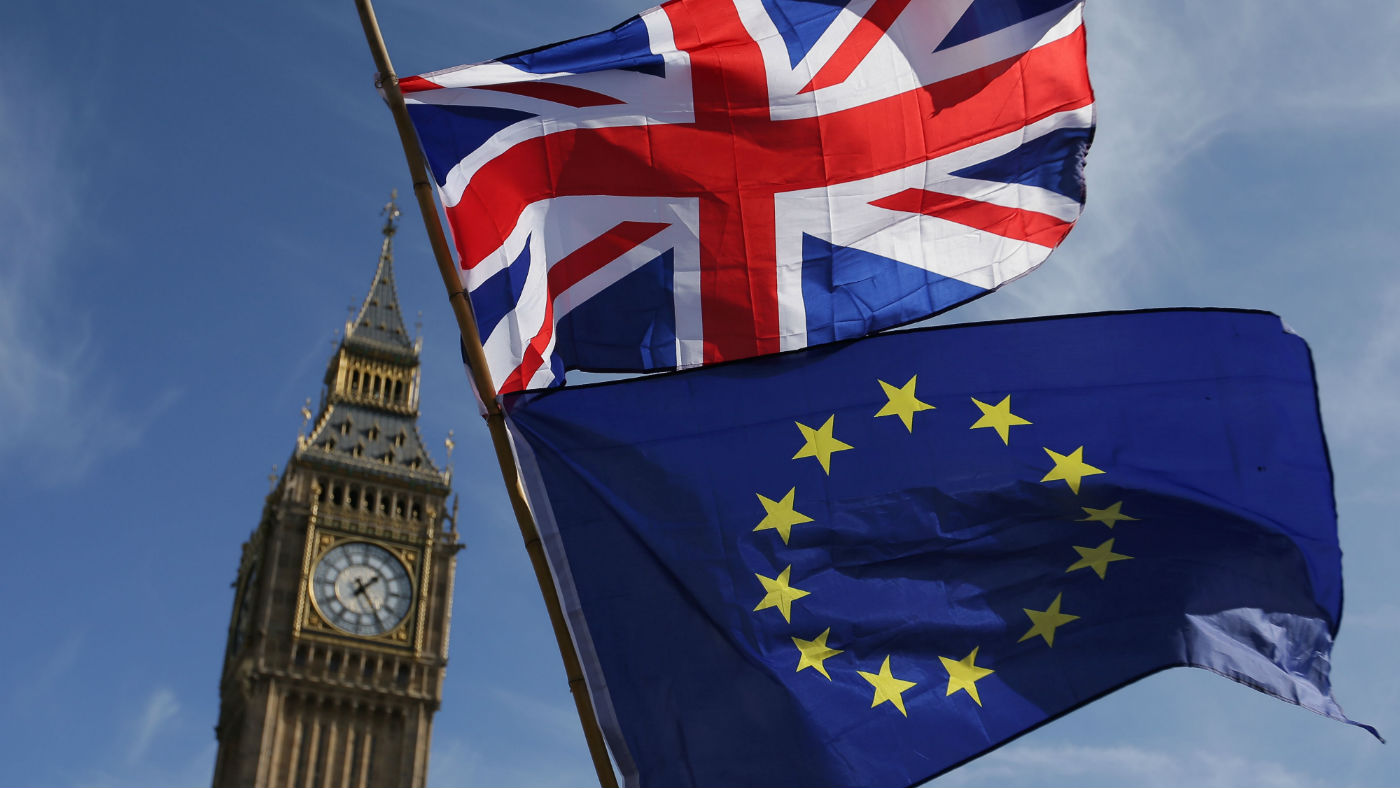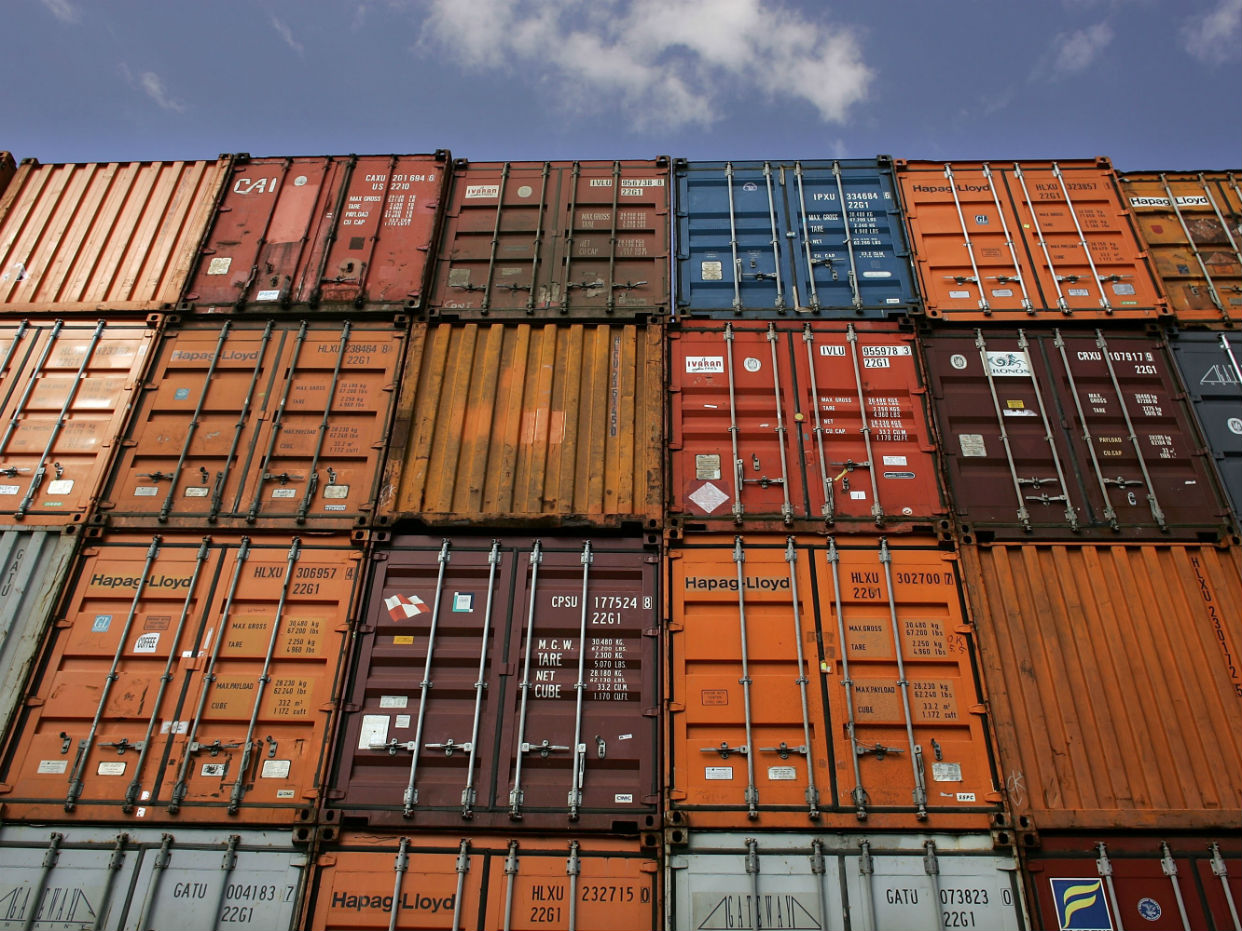Brexit: What are the pros and cons of leaving the EU
The arguments for and against membership of the European Union

A free daily email with the biggest news stories of the day – and the best features from TheWeek.com
You are now subscribed
Your newsletter sign-up was successful
Trade

The EU is a single market in which no tariffs are imposed on imports and exports between member states.
"More than 50 per cent of our exports go to EU countries," says Sky News, and membership of the bloc means we have always had a say over how trading rules are drawn up.
The Week
Escape your echo chamber. Get the facts behind the news, plus analysis from multiple perspectives.

Sign up for The Week's Free Newsletters
From our morning news briefing to a weekly Good News Newsletter, get the best of The Week delivered directly to your inbox.
From our morning news briefing to a weekly Good News Newsletter, get the best of The Week delivered directly to your inbox.
Britain also benefits from trade deals between the EU and other world powers and would lose some of that negotiating power, but would be free to establish its own trade agreements.
A middle-ground option would see the UK leave the political aspects of the European Union, meaning it is not bound by EU laws on areas such as agriculture, justice and home affairs, yet remains a member of the single market.
That would mean seeking membership of the European Free Trade Area, which currently includes alongside the 28 EU member states plus Norway, Iceland, Liechtenstein and Switzerland.
Former Ukip leader Nigel Farage has in the past suggested Britain could follow the lead of Norway - although he has not repeated that since the Brexit vote.
A free daily email with the biggest news stories of the day – and the best features from TheWeek.com
But others argue that an "amicable divorce" would not be possible.
"If Britain were to join the Norwegian club," wrote The Economist, "it would remain bound by virtually all EU regulations, including the working-time directive and almost everything dreamed up in Brussels in future." Meanwhile it would no longer have any influence on what those regulations said.
Leading Brexit campaigner Boris Johnson, meanwhile, proposed adopting a Canada-style trade arrangement that would mean access to, but not membership of, the single market.
"I think we can strike a deal as the Canadians have done based on trade and getting rid of tariffs" and have a "very, very bright future", he said.
The idea was dismissed by Cameron at the time, who said it would mean "years of painful negotiations and a poorer deal than we have today". It took Canada seven years to get its deal and it needed to ratified by all EU parliaments including regional governments in areas like Wallonia in Belgium.
Eurosceptics argue the vast majority of small and medium-sized firms do not trade with the EU but are restricted by a huge regulatory burden imposed from abroad.
A study by the think-tank Open Europe, which campaigned to see the EU radically reformed, found that the worst-case "Brexit" scenario is that the UK economy loses 2.2 per cent of its total GDP by 2030 (by comparison, the recession of 2008-09 knocked about six per cent from UK GDP).
However, it says GDP could rise by 1.6 per cent if the UK were able to negotiate a free trade deal with Europe – ie to maintain the current trade setup.
Whether other EU countries would offer such generous terms is one of the big unknowns of the debate.
Brexit campaigners argue it would be in the interests of other European countries to re-establish free trade, but their opponents suggest that the EU would want to make life hard for Britain in order to discourage further breakaways.
Click through to read the pros and cons of Brexit on investment.
-
 Secured vs. unsecured loans: how do they differ and which is better?
Secured vs. unsecured loans: how do they differ and which is better?the explainer They are distinguished by the level of risk and the inclusion of collateral
-
 ‘States that set ambitious climate targets are already feeling the tension’
‘States that set ambitious climate targets are already feeling the tension’Instant Opinion Opinion, comment and editorials of the day
-
 Mixing up mixology: The year ahead in cocktail and bar trends
Mixing up mixology: The year ahead in cocktail and bar trendsthe week recommends It’s hojicha vs. matcha, plus a whole lot more
-
 How corrupt is the UK?
How corrupt is the UK?The Explainer Decline in standards ‘risks becoming a defining feature of our political culture’ as Britain falls to lowest ever score on global index
-
 The high street: Britain’s next political battleground?
The high street: Britain’s next political battleground?In the Spotlight Mass closure of shops and influx of organised crime are fuelling voter anger, and offer an opening for Reform UK
-
 Is a Reform-Tory pact becoming more likely?
Is a Reform-Tory pact becoming more likely?Today’s Big Question Nigel Farage’s party is ahead in the polls but still falls well short of a Commons majority, while Conservatives are still losing MPs to Reform
-
 Taking the low road: why the SNP is still standing strong
Taking the low road: why the SNP is still standing strongTalking Point Party is on track for a fifth consecutive victory in May’s Holyrood election, despite controversies and plummeting support
-
 What difference will the 'historic' UK-Germany treaty make?
What difference will the 'historic' UK-Germany treaty make?Today's Big Question Europe's two biggest economies sign first treaty since WWII, underscoring 'triangle alliance' with France amid growing Russian threat and US distance
-
 Is the G7 still relevant?
Is the G7 still relevant?Talking Point Donald Trump's early departure cast a shadow over this week's meeting of the world's major democracies
-
 Angela Rayner: Labour's next leader?
Angela Rayner: Labour's next leader?Today's Big Question A leaked memo has sparked speculation that the deputy PM is positioning herself as the left-of-centre alternative to Keir Starmer
-
 Is Starmer's plan to send migrants overseas Rwanda 2.0?
Is Starmer's plan to send migrants overseas Rwanda 2.0?Today's Big Question Failed asylum seekers could be removed to Balkan nations under new government plans